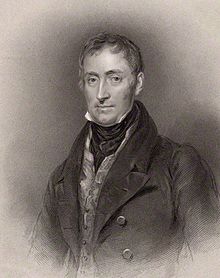James Stuart-Wortley, 1st Baron Wharncliffe facts for kids
Quick facts for kids
The Lord Wharncliffe
|
|
|---|---|
 |
|
| Lord Privy Seal | |
| In office 15 December 1834 – 8 April 1835 |
|
| Monarch | William IV |
| Prime Minister | Sir Robert Peel, Bt |
| Preceded by | The Earl of Mulgrave |
| Succeeded by | Viscount Dungannon |
| Lord President of the Council | |
| In office 3 September 1841 – 19 December 1845 |
|
| Monarch | Victoria |
| Prime Minister | Sir Robert Peel, Bt |
| Preceded by | The Marquess of Lansdowne |
| Succeeded by | The Duke of Buccleuch |
| Personal details | |
| Born | 6 October 1776 |
| Died | 19 December 1845 (aged 69) |
| Nationality | British |
| Political party | Tory |
| Spouse | Lady Elizabeth Crichton (1779–1856) |
| Parents | James Stuart-Wortley-Mackenzie Margaret Cunynghame |
James Archibald Stuart-Wortley-Mackenzie, 1st Baron Wharncliffe (born October 6, 1776 – died December 19, 1845) was an important British soldier and politician. He was the grandson of a Prime Minister, John Stuart, 3rd Earl of Bute.
Lord Wharncliffe served in high government positions. He was the Lord Privy Seal from 1834 to 1835. Later, he became the Lord President of the Council from 1841 to 1845. Both roles were under Prime Minister Sir Robert Peel.
Contents
Early Life and Education
James Stuart-Wortley came from a well-known family. His father was Colonel James Stuart-Wortley-Mackenzie. His grandfather was John Stuart, 3rd Earl of Bute, who was once a Prime Minister.
His grandmother was Mary Wortley-Montagu. She was a baroness in her own right. James went to Charterhouse School for his education.
Military Career
James Stuart-Wortley began his military career in 1790. He joined the 48th Foot regiment. He moved to the 7th Foot in 1791.
By 1793, he became a Captain in the 72nd Foot. He was promoted to Lieutenant-Colonel in 1797. Six months later, he became a Colonel of the 12th Foot. In 1797, he joined the Grenadier Guards. He left the army in 1801.
Political Journey
James Stuart-Wortley started his political career as a Tory Member of Parliament. He represented a small area called Bossiney in Cornwall. He served there from 1802 to 1818. After that, he was elected for Yorkshire.
Over time, his political views became more open-minded. He supported Catholic Emancipation. This meant giving more rights to Catholics. Because of this, he lost his seat in Parliament in 1826.
After losing his seat, he was given a special title. He became Baron Wharncliffe, of Wortley in the County of York. This recognized his work in Parliament. It also showed his important standing among country gentlemen.
The Reform Act of 1832
In 1831, there was a lot of debate about the 1832 Reform Bill. This bill aimed to change how people voted. Lord Wharncliffe helped create a way for the government and the opposition to talk.
A famous diarist, Greville, wrote about him. He said Lord Wharncliffe was a "spirited, sensible, zealous, honorable, consistent country gentleman." He was known for being fair and honest. This helped him bring different groups together.
Lord Wharncliffe first opposed the Reform Bill. But he soon realized that a big conflict was not good. He and some other Tories, called "the Waverers," changed their minds. They played a key role in helping the bill pass.
He became Lord Privy Seal in Sir Robert Peel's government from 1834 to 1835. He joined Peel again in 1841. This time, he became Lord President of the Council. He held this position until 1845.
In 1834, he became a member of the Privy Council. This is a group of advisors to the King or Queen.
In 1837, Lord Wharncliffe published the writings of his ancestor, Lady Mary Wortley Montagu. She was a famous writer.
A steam locomotive was named after him in 1833. It was called Lord Wharncliffe. It ran on the Dundee and Newtyle Railway. He was a director of this railway company.
Family Life
Lord Wharncliffe married Lady Elizabeth Caroline Mary Crichton in 1799. They had five children together:
- John Stuart-Wortley-Mackenzie, 2nd Baron Wharncliffe (1801–1855)
- Hon. Charles Stuart-Wortley-Mackenzie (1802–1844)
- Hon. Caroline Mary Stuart-Wortley (1803-1806)
- Hon. James Archibald Stuart-Wortley (1805–1881), who became a Solicitor-General
- Hon. Caroline Jane Stuart-Wortley-Mackenzie (1809-1876)
Lord Wharncliffe passed away in December 1845. He was 69 years old. His oldest son, John, took over his title. Lady Wharncliffe died in April 1856.
 | Selma Burke |
 | Pauline Powell Burns |
 | Frederick J. Brown |
 | Robert Blackburn |

